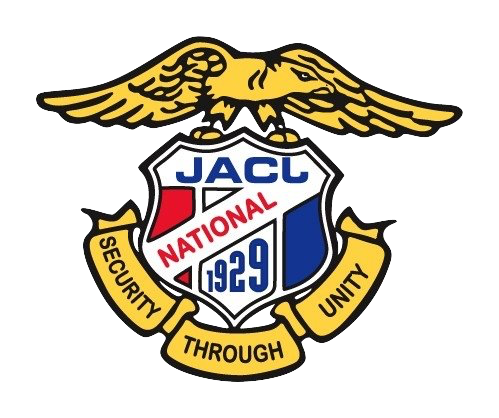Commission to Study and Develop Reparation Proposals for African-Americans Act (H.R. 40/S 40)
tl: A slave auction in Georgia (Rischgitz/Getty Images), tr: 2002 New York slave reparations protest (Mario Tama/Getty Images), bl: Photo taken by Manny Ceneta, br: Congresswoman Sheila Jackson Lee [D-TX-18]
H.R. 40 was first introduced by the late Rep. John Conyers [D-MI-13] in 1989. Representative Conyers, an American politician of the Democratic Party, served in the U.S. House of Representatives from 1965 until 2017. During his time in office, Rep. Conyers was the main sponsor of H.R. 40, successfully introducing the Act first in the 101st Congress, and lastly in the 115th Congress.
Following Rep. Conyers’ resignation in 2017, U.S. Representative Sheila Jackson Lee [D-TX-18], who has served under Texas’s 18th Congressional district since 1995, introduced H.R.40 into the 116th Congress on January 3rd, 2019. Since 2019, Rep. Jackson Lee has been the bill’s main sponsor, advocating for reparations on a national scale.
What is H.R. 40?
H.R. 40 is a bill that would establish a commission of 13 members tasked with studying and developing reparation proposals for African Americans and presenting their findings to Congress. These 13 members would be proficient in ‘African Studies’ and ‘reparatory justice. Furthermore, the commission would not only research reparations, but also develop an appropriate apology directed towards the African American, Black, and African communities of the United States, all of whom have and continue to suffer under our countries discriminatory policies which followed emancipation such as Redlining and Jim Crow. H.R. 40 is much more than studying the institution of slavery and what has occurred within the last 400 years and more about understanding why our country’s African American, Black, and African communities are suffering today, and how we can progress moving forward. Rep. Jackson Lee has stated that reparations should include not only financial compensation but also “restitution, rehabilitation, acknowledgment of injustices, apologies, memorizations, educational reform and guarantees that such injustices won't happen again.”
Japanese American’s stand in solidarity
In 1988, President Ronald Reagan signed into law H.R. 442 which became known as the Civil Liberties Act of 1988. This bill granted redress of $20,000 and a formal presidential apology to the Japanese Americans who were incarcerated during WWII. This was a historical moment in Japanese American history and the greater historical journey of ethnic minorities in the United States. Like African Americans, Japanese Americans have long experienced racial prejudice and lack of political leadership, which led to the mass incarceration during WWII and further discrimination. Following the international COVID-19 outbreak in 2020, a pandemic that shook the globe, the Asian diaspora, specifically in the United States fell victim to deep-rooted Anti-Asian hate. Now, more than ever, Japanese Americans are standing in solidarity with Black Americans, recognizing the power we hold through unity. Many Japanese Americans reflect on their strenuous journey to reparations, viewing H.R. 40 as another path of reparations that is (1) overdue and (2) possible through togetherness. Once our nation acknowledges slavery and segregation on a national level, progress can be made for future generations to come.
Refer to pg. 6 here to read personal testimonies on H.R. 40 from Japanese Americans
Read this letter from 45 Camp Survivors on why they support H.R. 40
JACL Testimony Submitted to House Judiciary Committee on behalf of H.R. 40
At Start of Black History Month, Over 350 Groups Urge US House Leadership To Back H.R. 40
Get Involved!
Contact your states Representatives and Senators to support the bill (Click here to view your state’s Congressional members and their contact information )
Join Tsuru for Solidarity’s HR40 campaign here!
Videos
Japanese American Support For Racial Justice — JACL Executive Director David Inoue (https://comcastnewsmakers.com/Videos/2021/4/29/Japanese-American-Support-for-Racial-Justice)
The Following organizations support H.R.40
Asian & Pacific Islander American Health Forum (APIAHF)
Asian Law Alliance
Asian Pacific American Labor Alliance (APALA), AFL-CIO
Asian Pacific American Labor Alliance (APALA) – DC
Asian Pacific American Labor Alliance (APALA) – Maryland
Asian Pacific American Labor Alliance (APALA) – Philadelphia
Asian Pacific American Labor Alliance (APALA) – Sacramento
Asian Pacific American Labor Alliance (APALA) – Seattle
Asian Pacific Islander Christians for Social Justice
Asian Pacific Partners for Empowerment, Advocacy and Leadership (APPEAL)
Densho
18 Million Rising
Empowering Pacific Islander Communities (EPIC)
Friends of Minidoka
Japanese American Families for Justice
Japanese American Memorial Pilgrimages
Japanese American National Museum
Japanese American Service Committee (JASC)
LEAD Filipino
Manzanar Committee
National Asian Pacific American Bar Association (NAPABA)
National CAPACD – National Coalition for Asian Pacific American Community Development
National Council of Asian Pacific Americans (NCAPA)
National Federation of Filipino American Associations
National Japanese American Memorial Foundation (NJAMF)
National Queer Asian Pacific Islander Alliance
Nihonmachi Outreach Committee
Nikkei for Civil Rights & Redress
Nikkei Progressives
North Carolina Asian Americans Together (NCAAT)
OCA - Asian Pacific American Advocate
San Francisco Bay Area Day of Remembrance Organizing Committee
San Jose Nikkei Resisters
South Asian Americans Leading Together (SAALT)
Tadaima
Tule Lake Committee
Tsuru for Solidarity
For a complete list of supporters click here

![tl: A slave auction in Georgia (Rischgitz/Getty Images), tr: 2002 New York slave reparations protest (Mario Tama/Getty Images), bl: Photo taken by Manny Ceneta, br: Congresswoman Sheila Jackson Lee [D-TX-18]](https://images.squarespace-cdn.com/content/v1/5e8e0d3e848b7a506128dddf/1625978212939-0BBTLC7HRV45STWMND3T/HR40.png)